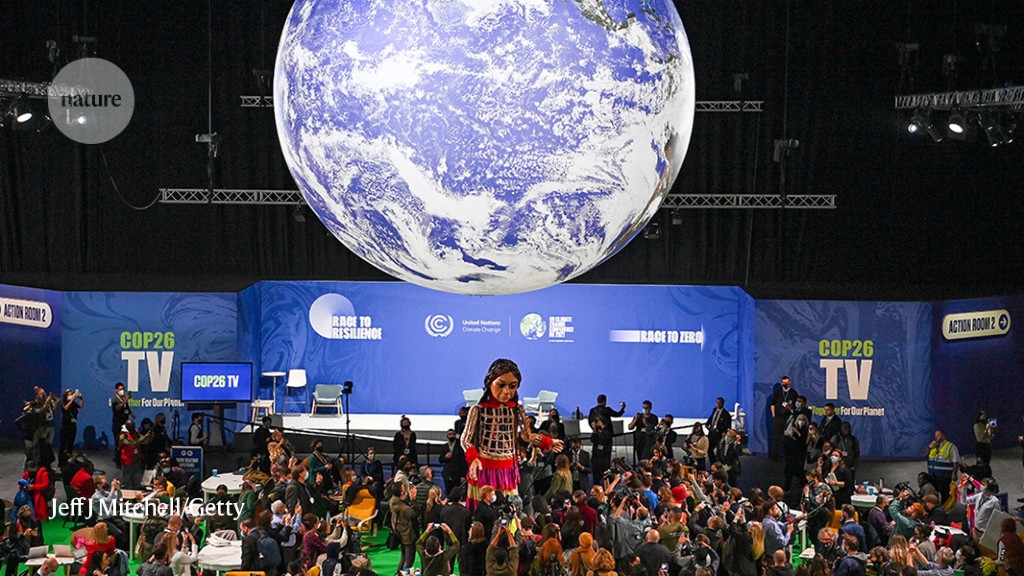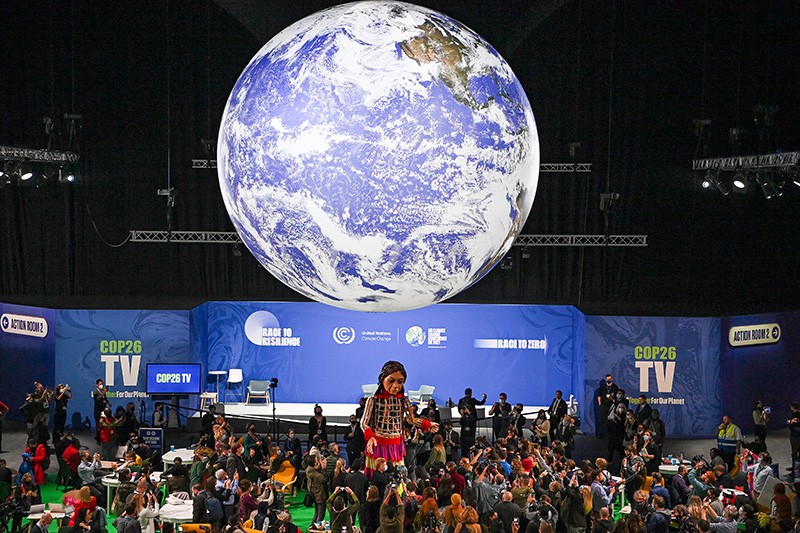Researchers who helped to draft parts of the first United Nations environmental agreements nearly 30 years ago say that that low income countries are being massively let down in the current COP26 climate talks.
The 1992 UN Earth Summit in Rio de Janeiro, Brazil, was attended by scientists and policymakers from rich and poor countries. “I was so hopeful,” says ecologist Zakri Abdul Hamid, who was the scientific adviser to Malaysia’s delegation, as he recalls how he “morphed from a straight-laced young academic” to a scientific policymaker.
“I had high hopes in Rio,” adds Saleemul Huq, a climate scientist from Bangladesh who was an adviser to climate-vulnerable countries attending Rio.
The summit led to UN agreements to tackle climate change and biodiversity loss, and a new UN focus on sustainable development. But Zakri now thinks he was “naive” to expect wealthy nations to keep their promises to protect the interests of poorer countries.
As the second week of negotiations at the 26th UN Climate Change Conference of the Parties (COP26) gets under way in Glasgow, UK, low-income nations are deeply critical about the slow pace of decarbonization, and say that pledges to deliver funding have not been honoured.
Landmark agreement
Rio was a significant meeting because policymakers from rich and poor countries settled on what seemed to be an equitable formula to protect the environment from the worst effects of industrialization. The ideas that led to the summit had largely come from high-income countries. Lower income nations were concerned that a climate-change or biodiversity agreement would prevent them from building their own industries and modern infrastructure.
In response, richer countries agreed to take on the burden of decarbonizing and reducing biodiversity loss, while giving poorer countries more time to industrialize. But they have not done this, says Zakri, who went on to chair the Intergovernmental Science-Policy Platform on Biodiversity and Ecosystem Services.
In a report published ahead of COP26, researchers at the Centre for Science and Environment (CSE) in New Delhi worked out that between 1990 and 2019, the highest-income countries were responsible for two-thirds of greenhouse-gas emissions. Wealthy nations also failed to abide by the 1997 Kyoto Protocol, an international law to reduce emissions by an average of 5% from 1990 levels between 2008 and 2012.
From the early 1990s onwards, ‘contraction and convergence’ gained popularity as a way to boost equity. The idea was that high- and low-income countries would both decarbonize, but at different rates — with richer countries cutting emissions more quickly (‘contraction’) — until emissions from the two groups converged on the same per-capita level. The idea soon attracted influential policymakers from both high- and low-income countries, including China and the United States, as well as from UN agencies.
“It offended no-one; it united everyone. It is equitable. It is inclusive,” says the idea’s principal architect, Aubrey Meyer at the Global Commons Institute in London. But this support for the concept failed to translate into meaningful action.
“Today, 30 years later at COP26, most environmental problems have worsened,” says Zakri, and richer nations have not been held to account.
Sunita Narain is director-general of the CSE and co-authored its report with climate-policy specialist Avantika Goswami. Narain says the 2015 Paris climate deal — the agreement to limit global warming to below 2 °C above pre-industrial levels — has ended up weakening commitments to equity. Since the agreement was signed, lower-income countries are also expected to start to reduce their emissions. Yet these countries produce a fraction of the greenhouse gases of the big emitters, she says.
“The reality is that Paris has not given us the space to grow,” says Narain, who was at the Rio summit representing CSE. She worries that pledges from the large emitters to achieve net-zero emissions by or after 2050 will enable richer countries to “continue to take more of the carbon budget”, unless strict interim targets are enforced.
Funding failure
The Rio veterans are also furious about broken promises on climate finance. The 1992 deal stipulated that richer countries would provide funding to protect climate-vulnerable countries from the effects of global warming, and to help them to develop new technologies.
A $1 billion fund called the Global Environment Facility was established, and this would be followed by other modest climate funding pots. At COP15 in Copenhagen in 2009, richer nations agreed on a more realistic figure that would match the needs of low and middle income countries: they promised to provide US$100 billion a year from 2020 to 2025. The 2020 target was missed, and more than two-thirds of the funding that has been given is in the form of loans, not the “new and additional finance” that was expected after Rio, says Tariq Banuri, a former director of sustainable development at the UN in New York, who represented Pakistan at the 1992 Earth Summit.
Banuri says the COP negotiation process that he, Huq, Zakri, Narain and others helped to create is now not much more than “institutional therapy” for the richer countries. “They are engaging in a failed process to reassure themselves that they are doing something. I am very pessimistic about the COP,” he says.
At the same time, there’s a consensus that hope must not die.Large numbers of scientists and young people from science, activism and policy are present for the COP in Glasgow. “They must continue to speak truth to power,” Narain says.
Huq, who founded the International Centre for Climate Change and Development in Dhaka, says countries must continue to work through the UN, collaboratively, to get justice. “The United Nations is the closest thing the world has to a global governance body,” he says. “We have to persevere with it, even though it isn’t really delivering.”





More News
Neanderthal–human baby–making was recent — and brief
Who will make AlphaFold3 open source? Scientists race to crack AI model
These crows have counting skills previously only seen in people